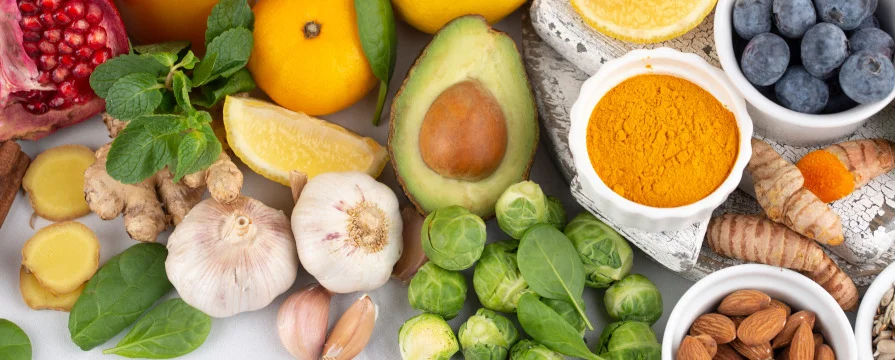A thorough grasp of women’s nutritional demands is frequently the first step in ensuring their best health. Prioritising essential nutrients that support women’s different physiology is essential when creating a multivitamin just for them. Given the important function that calcium plays in maintaining bone health, the need for iron in the creation of blood, and the necessary part that vitamins D and B12 play in overall wellbeing, a complete multivitamin for women should include a range of essential elements that are essential for health and longevity.
Multivitamin for Women are carefully crafted dietary supplements that are intended to meet the unique nutritional requirements of women. They include an extensive variety of key vitamins, minerals, and other nutrients that are necessary for good health and overall wellbeing. Multivitamin Tablets for Women are designed to help with immune system support, digestion of energy, hormonal balance, bone strength, and immune system function.
Supplements give women the assistance they need to survive in their daily lives by increasing vitality and resilience against nutrient shortages. These essential nutrients include calcium, iron, vitamin D, and B vitamins, all of which are balanced combined in their supplements. Multivitamin Tablets for Women are a practical and efficient approach for women to prioritise wellbeing and make sure they are getting the necessary nutrients to feel their best, whether they are trying to support specific health goals or cover nutritional gaps in their diets.
Here are the 9 Essential Nutrients Every Women Needs in Her Multivitamin:
1. Vitamin A
There are two types of this vitamin found in food: carotenoids and retinol. It is essential for preserving good vision, especially in areas with poor lighting. In addition, vitamin A promotes skin health, cell division and growth, and immune system performance. Vitamin A-rich foods include spinach, sweet potatoes, carrots, kale, liver, eggs, and dairy products.
2. Vitamin C
Being a potent antioxidant, vitamin C lowers the risk of chronic diseases by shielding cells from damage brought on by free radicals. It is essential for the manufacturing of collagen, which is required to keep bones, blood vessels, and skin in good condition. In addition, vitamin C aids in wound healing, immune system performance, and the uptake of non-heme iron from plant-based diets.
3.Vitamin D:
Vitamin D, sometimes called the “sunshine vitamin,” is special because the skin can produce it on its own when exposed to sunlight. It is essential for keeping teeth and bones strong because it improves diet vitamin and mineral absorption. Moreover, vitamin D helps lower inflammation, regulates mood, and strengthens the immune system.
4. Vitamin E:
As an antioxidant, this fat-soluble vitamin shields cells from the oxidative damage brought on by free radicals. Immune system performance, skin health, and cell wall protection all depend on vitamin E. Vitamin E-rich foods include sunflower seeds, almond and hazelnut nuts, spinach, broccoli, sunflower oil, and vegetable oils including wheat germ and sunflower oil.
5. Vitamin K:
Blood clotting, which is necessary for wound healing and preventing excessive bleeding, depends on vitamin K. K1 (phylloquinone), which is found in green leafy vegetables, and K2 (menaquinone), which is found in processed foods and animal products, are the two primary forms of vitamin K. Apart from its function in facilitating blood coagulation, vitamin K promotes bone health by helping in the control of calcium buildup in teeth and bones.
6. B Vitamins (B6, B12, Folate):
A class of water-soluble vitamins known as the B vitamins are essential for many different body processes. Pyridoxin, or vitamin B6, is involved in more than 100 enzymatic activities, such as the creation of neurotransmitters, the metabolism of amino acids, and the production of red blood cells. Red blood cell production, DNA synthesis, and neuron function all depend on vitamin B12, often known as cobalamin.
7. Calcium:
The mineral with the greatest amount in the body, calcium is necessary for the development and upkeep of healthy bones and teeth. It also affects blood coagulation, hormone secretion, neuron transmission, and muscle function. Good sources of calcium include dairy products, almond milk, tofu, leafy greens (such collard greens and kale), and fortified plant-based milk.
8. Iron:
The production of haemoglobin, the protein in red blood cells that transports oxygen from the lungs to the rest of the body, depends on the mineral iron. In addition, iron is necessary for immune system function, creating DNA, and energy production. Heme iron and non-heme iron are the two forms of dietary iron. Red meat, chicken, fish, lentils, beans, tofu, fortified cereals, and spinach are all excellent providers of iron.
9. Magnesium:
The body uses magnesium for over 300 biochemical processes, including the creation of proteins, the production of energy, the function of muscles and nerves, and the regulation of blood sugar. It also contributes to heart health, relaxation, and the growth and preservation of bones. Nuts, seeds, whole grains, leafy greens, legumes, and dark chocolate are dietary sources of magnesium.
Conclusion:
Essential to recognise and take into account unique nutritional needs of women in order to support their well-being and energy levels. Women can support numerous physiological activities required for overall health and reinforce bodies against deficiencies by key nutrients like calcium, iron, vitamin D, and B12 to well-prepared multivitamin. Giving women information and resources need to essential nutrients improves physical toughness and general well-being, allowing to reach goals and live healthy, fulfilling lives.




